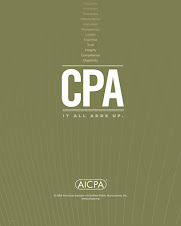Because my income is too high, I don't get the credit for my son's tuition. I heard that there was a deduction I could take.
Twila
Twila, you are correct. You can take up to $4,000 for post secondary education. The good news is that you do not have to itemize to get the write off. If you are in a 33% federal and state tax bracket this will save you $1,320 in taxes.
Below are ten important facts about this deduction that the IRS has on their website.
1. You do not have to itemize to take the Tuition and Fees deduction. You claim a tuition and fees deduction by completing Form 8917 and submitting it with your Form 1040 or Form 1040A.
2. You may be able to claim qualified tuition and fees expenses as either an adjustment to income, a Hope or Lifetime Learning credit, or – if applicable – as a business expense.
3. You cannot take the tuition and fees deduction on your income tax return if your filing status is married filing separately.
4. You cannot take the deduction if you are claimed, or can be claimed, as a dependent on someone else's return.
5. The deduction is reduced or eliminated if your modified adjusted gross income exceeds certain limits, based on your filing status.
6. You cannot claim the tuition and fees deduction if you or anyone else claims the Hope or Lifetime Learning credit for the same student in the same year.
7. If the educational expenses are also allowable as a business expense, the tuition and fees deduction may be claimed in conjunction with a business expense deduction, but the same expenses cannot be deducted twice.
8. You cannot claim a deduction or credit based on expenses paid with tax-free scholarship, fellowship, grant, or education savings account funds such as a Coverdell education savings account, tax-free savings bond interest or employer-provided education assistance.
9. The same rule applies to expenses you pay with a tax-exempt distribution from a qualified tuition plan, except that you can deduct qualified expenses you pay only with that part of the distribution that is a return of your contribution to the plan.
10. IRS Publication 970, Tax Benefits for Education, can help eligible parents and students understand the special rules that apply and decide which tax break to claim. The publication is available at IRS.gov or by calling 800-TAX-FORM (800-829-3676).
I hope that this helps.
Larry Kopsa CPA

Saturday, April 11, 2009
I DON'T QUALIFY FOR TUITION TAX CREDIT. I HEARD THAT THERE WAS A DEDUCTION.
Subscribe to:
Post Comments (Atom)


No comments:
Post a Comment